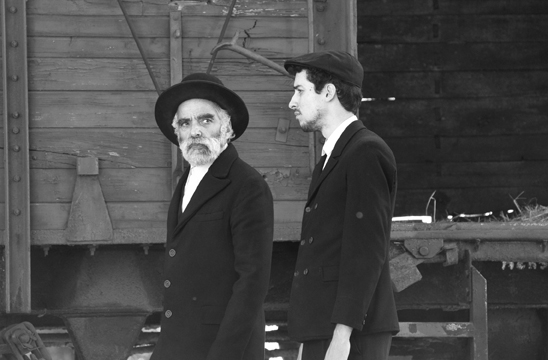
Hermann Sámuel (Iván Angelus) and his son (Marcell Nagy) arrive in a small Hungarian village in 1945 (Lenke Szilagyi/Menemsha Films)
![]() Conventional war movies offer fireworks and brave deeds, but it’s the aftermath of war that can fascinate with a quieter slow burn. How do communities reconcile after the horrors of occupation and combat? In Ferenc Török’s 1945, they do it with evil intentions, a guilty conscience, and the eager desire to usurp or defraud one’s fellow man.
Conventional war movies offer fireworks and brave deeds, but it’s the aftermath of war that can fascinate with a quieter slow burn. How do communities reconcile after the horrors of occupation and combat? In Ferenc Török’s 1945, they do it with evil intentions, a guilty conscience, and the eager desire to usurp or defraud one’s fellow man.
The black-and-white film follows the contortions that ensue when Hungarian villagers get wind that the Jewish neighbors they betrayed during the war are headed back to town. The Academy Award–winning Ida (2014) also grappled with the fallout from World War II. This more eventful, tartly observed yet similarly fatalistic film quietly shakes its head at the toxic rumors, foolish deceptions, and unforeseen death that the homecoming will bring.
The main action initially takes place around the imminent wedding of the town clerk’s son. Busy preparations provide a quick introduction to a wide cast of intertwined characters, including the blowhard clerk, his bitter wife, and their precious boy whose-bride-to-be seems more interested in the family’s prosperity and position than in the wimpy groom. Hanging around on the sidelines are a brooding cock-of-the-walk for whom the bride harbors a forbidden passion; a compromised policemen afraid of being pushed out of his post by the watchful squad of Russians stalking the village; the town drunk, whose wife jealously hoards furnishings impounded from Jewish families; and an unctuous priest long used to cloaking common theft as God’s will.
This already high-strung bunch erupts in frantic gossip when a Jewish father and son return to the hamlet, where no one expected to see them alive again. Solemn, dark-clad and bearded, the two Jews hire a horse-drawn wagon for their effects and follow it from the train station silently on foot through the village streets. Their tight-lipped dignity stands in sharp contrast to the sordid machinations around them, and the act they have come to perform turns out to be a reckoning far from the villagers’ fevered imaginings. The visitors may not aim for revenge, but their very forbearance will goad the townspeople to acts of sabotage, self-destruction, and flight.
Not one shot is wasted. Every setup—some quite busy, others simple and drawn-out—move the story forward in terms of plot or emotion. Minimal dialogue keeps exchanges satisfyingly spiteful, and a soundtrack of austere tones and chimes maintains a baleful mood. When consequences finally arrive for the wicked, they hit hard. It’s not often we see karma work the way it’s supposed to, but in 1945, payback arrives with a lightning bolt, bringing some welcome but grim satisfaction in the wake of horror.


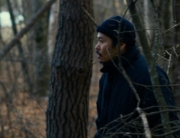
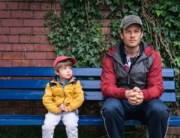
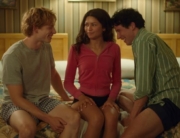
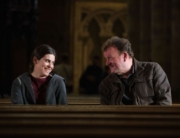
Leave A Comment